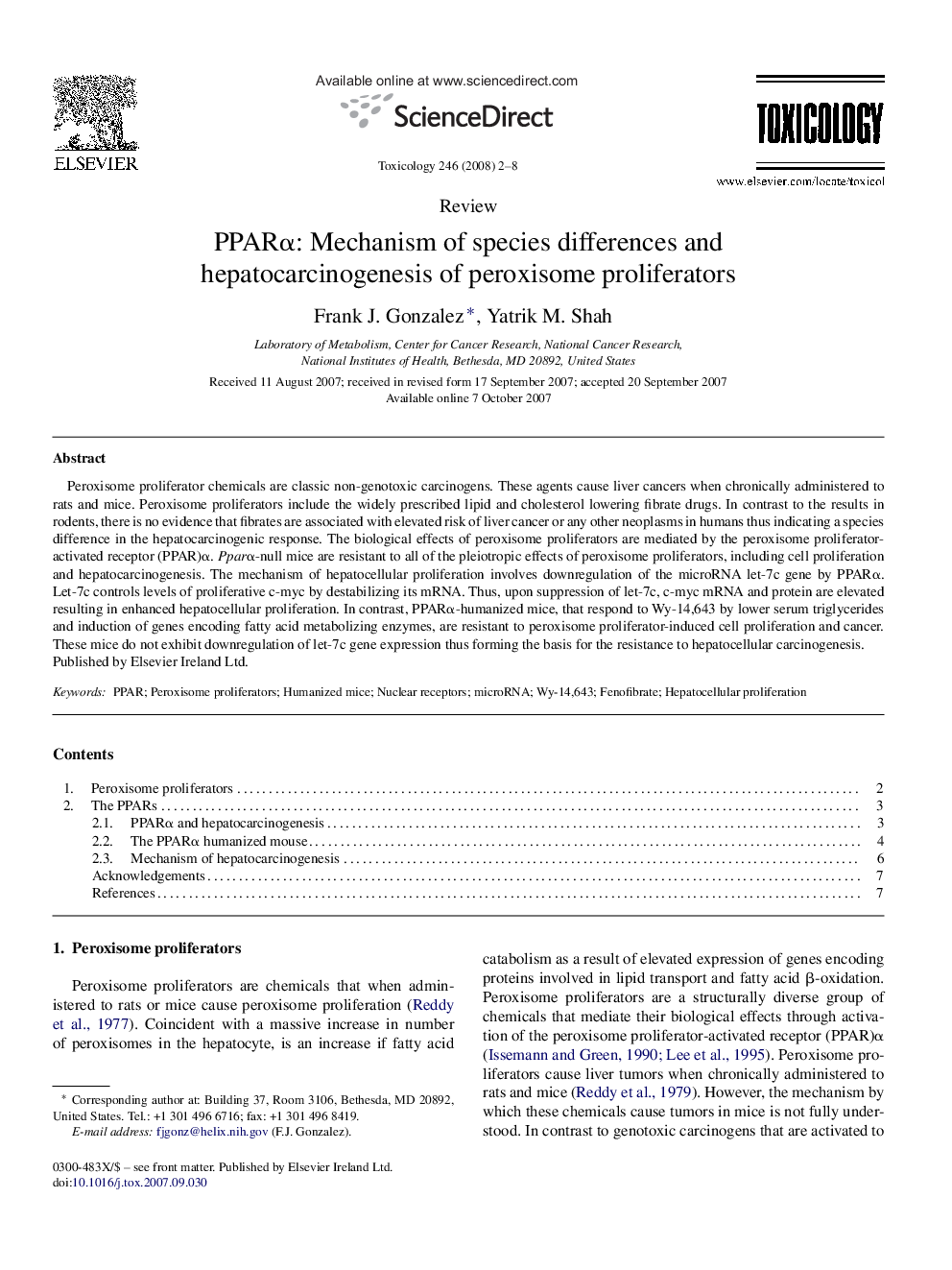| کد مقاله | کد نشریه | سال انتشار | مقاله انگلیسی | نسخه تمام متن |
|---|---|---|---|---|
| 2597472 | 1132585 | 2008 | 7 صفحه PDF | دانلود رایگان |

Peroxisome proliferator chemicals are classic non-genotoxic carcinogens. These agents cause liver cancers when chronically administered to rats and mice. Peroxisome proliferators include the widely prescribed lipid and cholesterol lowering fibrate drugs. In contrast to the results in rodents, there is no evidence that fibrates are associated with elevated risk of liver cancer or any other neoplasms in humans thus indicating a species difference in the hepatocarcinogenic response. The biological effects of peroxisome proliferators are mediated by the peroxisome proliferator-activated receptor (PPAR)α. Pparα-null mice are resistant to all of the pleiotropic effects of peroxisome proliferators, including cell proliferation and hepatocarcinogenesis. The mechanism of hepatocellular proliferation involves downregulation of the microRNA let-7c gene by PPARα. Let-7c controls levels of proliferative c-myc by destabilizing its mRNA. Thus, upon suppression of let-7c, c-myc mRNA and protein are elevated resulting in enhanced hepatocellular proliferation. In contrast, PPARα-humanized mice, that respond to Wy-14,643 by lower serum triglycerides and induction of genes encoding fatty acid metabolizing enzymes, are resistant to peroxisome proliferator-induced cell proliferation and cancer. These mice do not exhibit downregulation of let-7c gene expression thus forming the basis for the resistance to hepatocellular carcinogenesis.
Journal: Toxicology - Volume 246, Issue 1, 3 April 2008, Pages 2–8